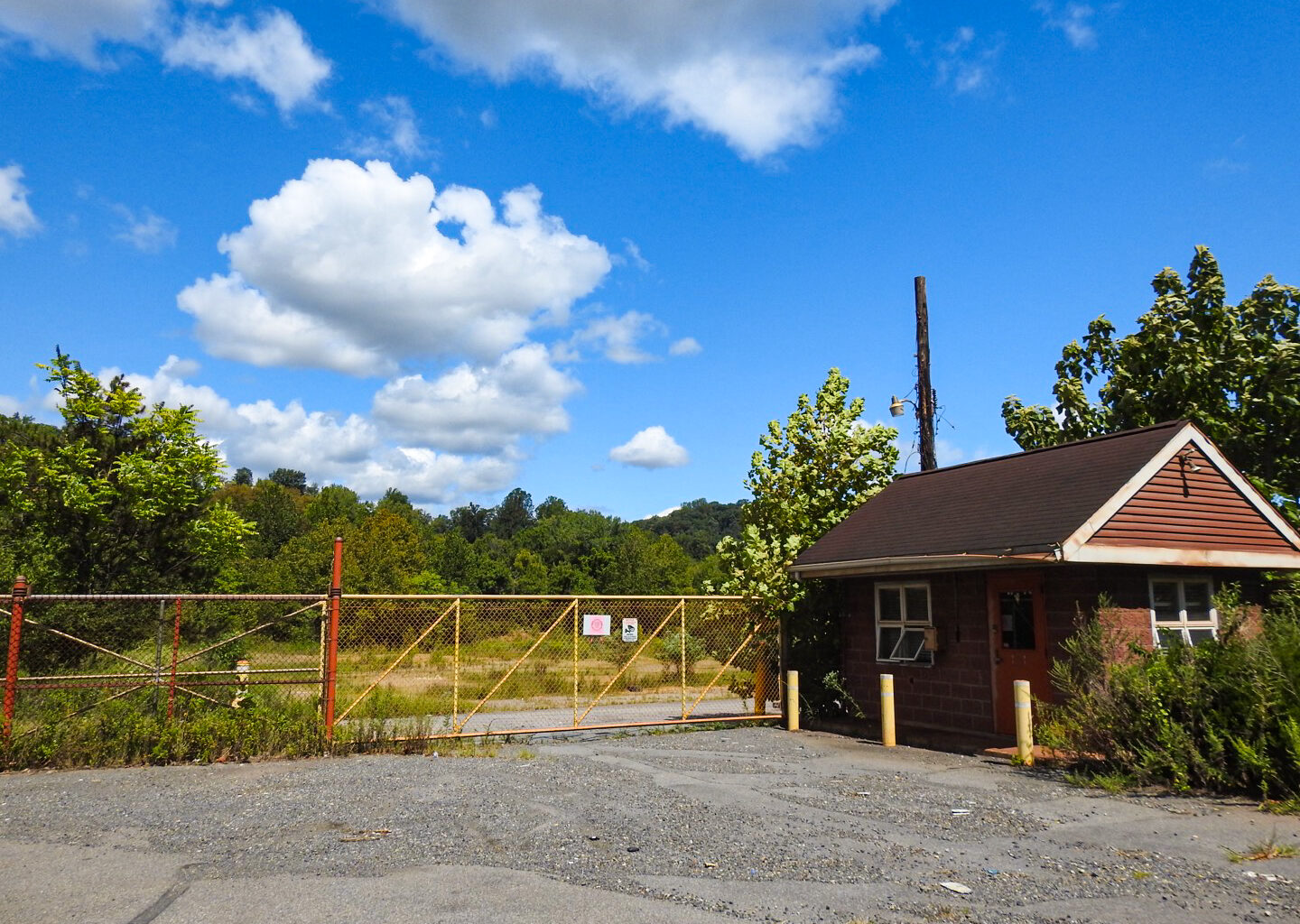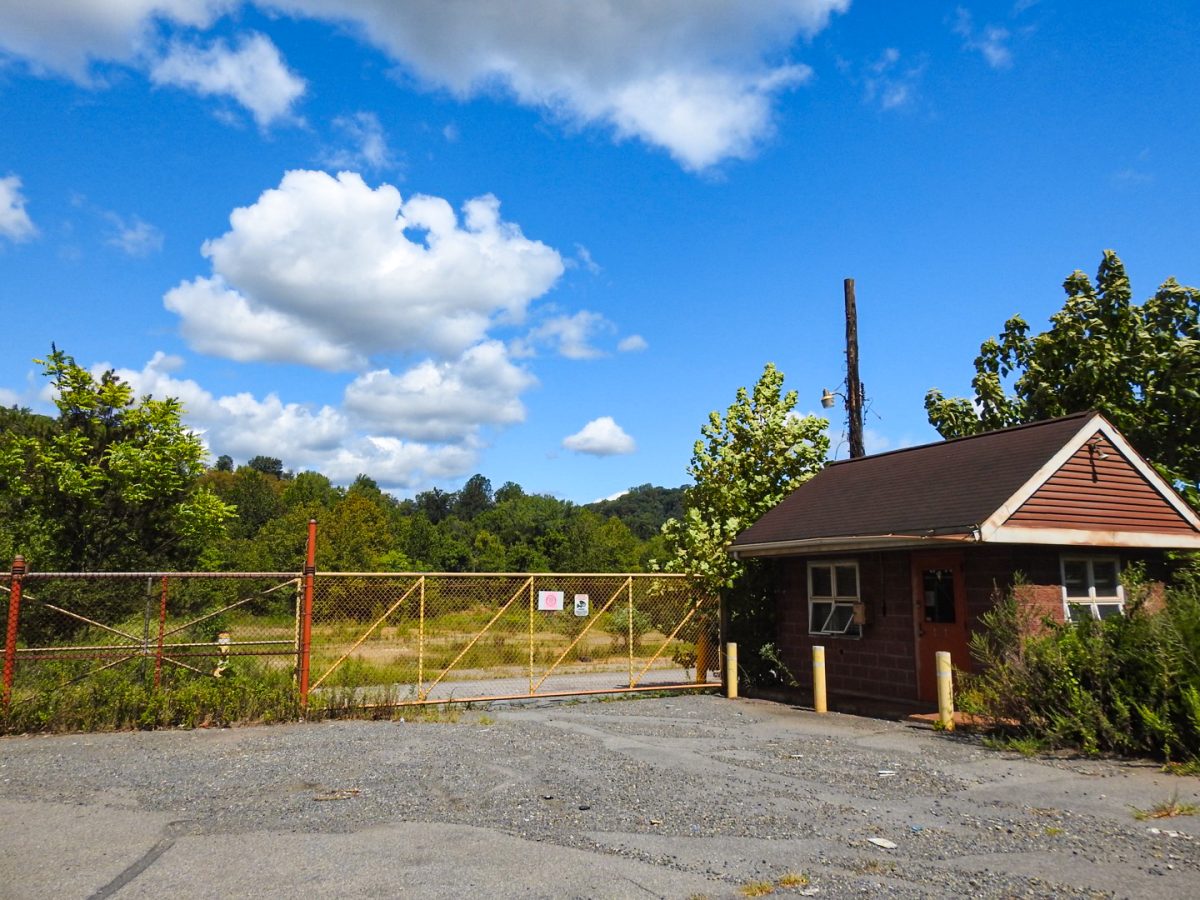Photo by Tim Jarkow for The Lafayette
The proposed warehouse would be built on wetland near Bushkill Creek.
The most recent meeting of the Easton Planning Commission continued deliberations over the construction of a proposed one-million-square-foot warehouse in Easton, with developers presenting management of environmental and community impacts.
Warehouse developer attorney Marc Kaplin brought in expert witnesses during the meeting last Wednesday to support the project by Scannell Properties.
The first witness, environmental consultant Jeff Smith, presented an analysis of the site, bordering Easton and Wilson Boroughs, under Pennsylvania’s Land Recycling and Remediation Standards Act.
He identified 15 areas of environmental concern and outlined a remediation plan, which included removing contaminated soil and managing any restrictions to prevent groundwater use. The plan is currently under review by the EPA and the Pennsylvania Department of Environmental Protection.
Kaplin said environmental risks would be minimized through a plan to manage materials, including controlling dust and monitoring the perimeter of the warehouse space.
“You can never eliminate or characterize everything, right?” he said. “It’s just not possible.”
When questioned by City Commissioner Ron Shipman on environmental lawsuits and potential contamination from blasting or stream relocation, Smith said those issues were beyond the scope of his study.
Acoustical engineer Ben Mueller followed with a presentation on noise analysis. He recently assessed Easton’s municipal noise limits to measure the possibility of long-term noise pollution issues, such as HVAC systems and loud trucks.
Mueller said that if the warehouse is approved and built, his company, Ostergaard Acoustical Associates, would be involved to ensure the space has “pleasant room acoustics.”
He concluded that projected noise levels would remain within city limits, even during high truck activity, a statement that was met with several questions by commissioners.
The deliberation period was — as in past commission meetings — crowded with the arguments and demands of presenters. Kaplin opened the meeting by requesting that Commissioner Kim Wagner refrain from providing any commentary on the matter of the warehouse, arguing she had shown bias against the project through prior questions and her appearance at a zoning hearing.
“Wagner has expressed a clear disposition against my client’s application,” Kaplin said, before the commission denied the request after entering executive session.
“Wagner is not inclined to recuse herself based on the fact that she said she has not made up her mind as to how she’s even voting,” Solicitor Joel Scheer said. Wagner did not respond to Kaplin’s concern during the meeting.
The commission scheduled its next meeting for Nov. 5, allowing opponents of the warehouse’s development to present expert testimony before a recommendation is made. Scheer noted that strong evidence will be required from anyone wishing to challenge the project.
Final deliberations are tentatively expected to take place at the Dec. 3 meeting.


